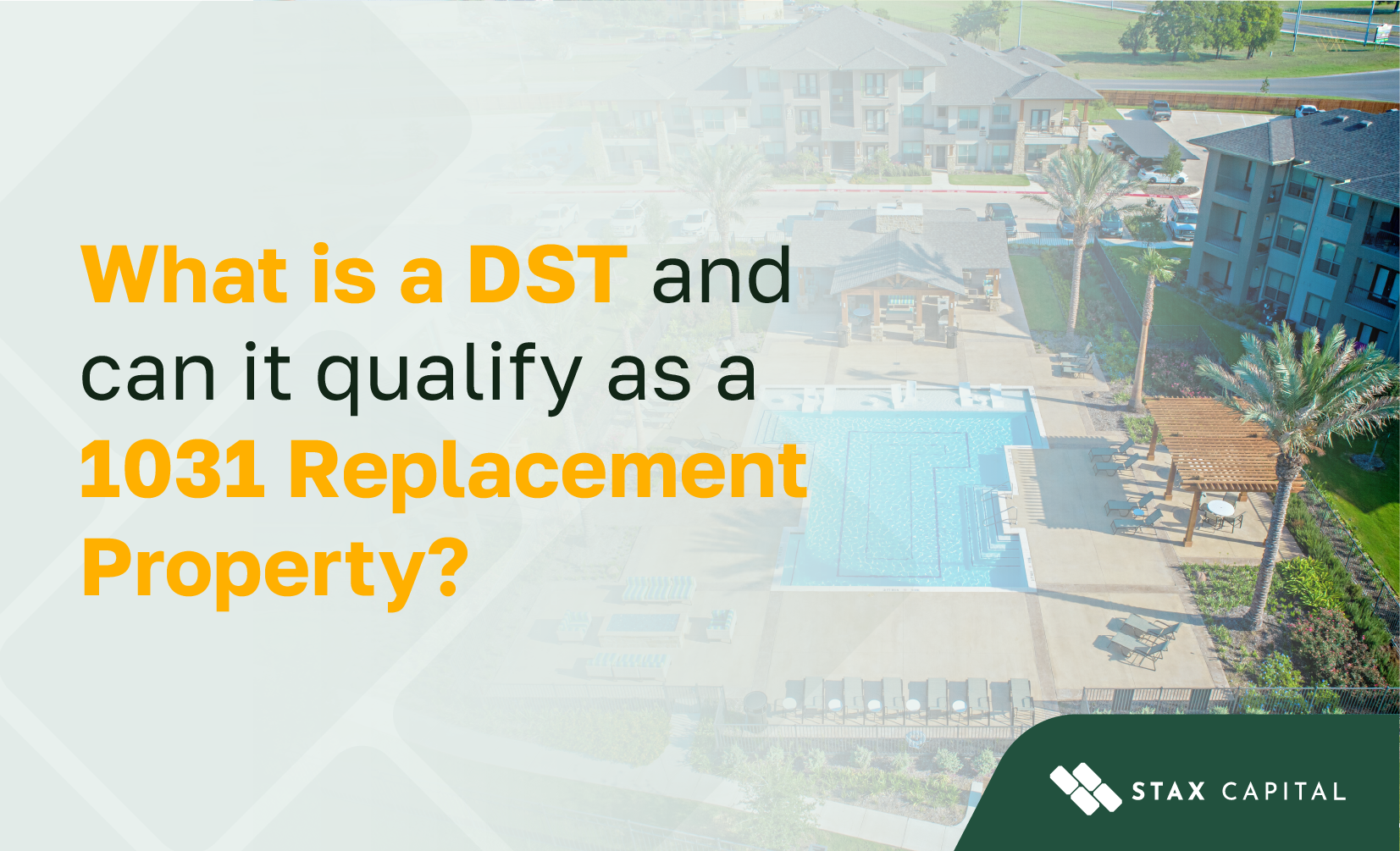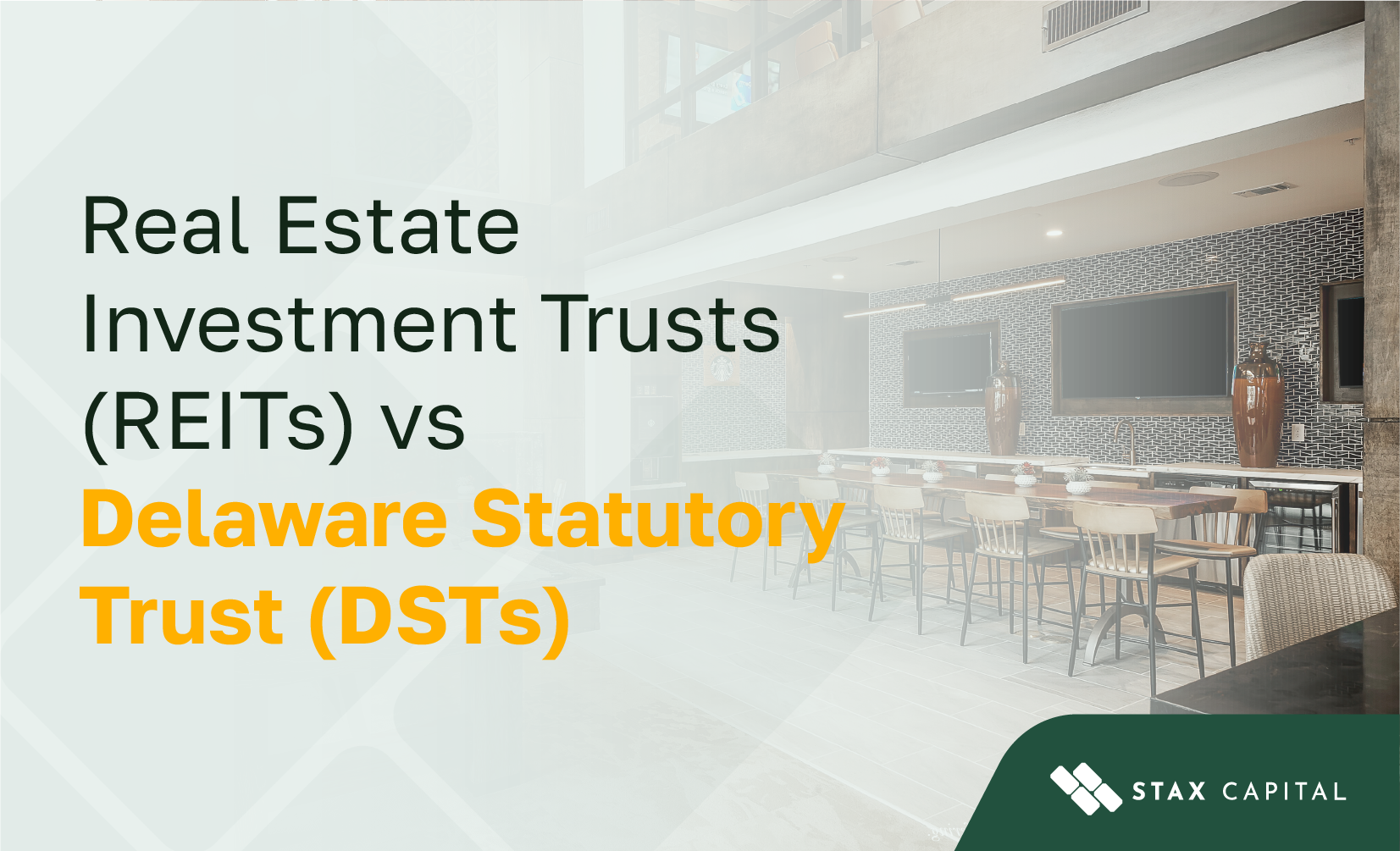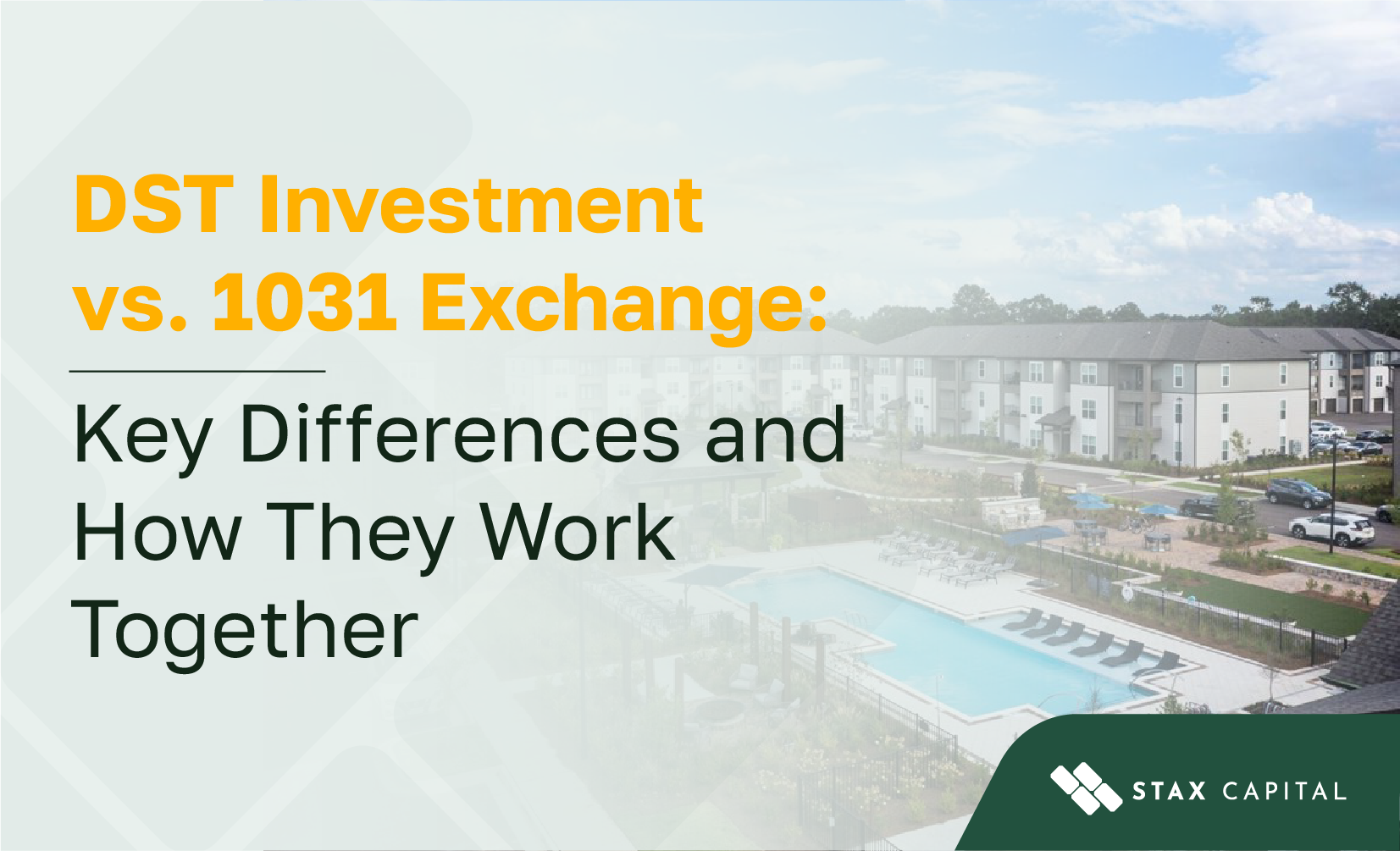What is a DST and can it qualify as a 1031 replacement property?

Andrew Carnaby's statement that 90% of millionaires build their wealth from real estate has become famous over time. Said at the turn of the century, this insight still holds true today.
However, back in the late 1800s, things were a little different. There was no capital gains tax for one, as this was only instituted in 1913.
Of course, capital gains tax or not, real estate is still a promising investment type. What's more, capital gains tax can be minimized through informed tax planning strategies. The use of DSTs is one example of this.
But what is a DST 1031 exchange? Delaware Statutory Trusts (DSTs) provide real estate investors with a passive investment structure that can qualify as 1031 exchange replacement properties.
If you are looking to defer capital gains taxes and reinvest into DST investment opportunities, continue reading to find out how DST 1031 real estate can work as part of your strategy.
What Is a DST?
A Delaware Statutory Trust offering or DST is a legal real estate entity designed for conducting business activities. Contrary to its name, Delaware Statutory Trust properties are not registered exclusively in Delaware. DSTs are also known in some instances as unincorporated business trusts or UBOs.
Similar to LLCs, DSTs allow investors to own fractional shares in professionally managed commercial real estate. This enables passive real estate investment while providing potential tax benefits through a DST 1031 exchange. DSTs also provide trust investors with limited liability while offering exposure to commercial real estate assets.
Unlike traditional real estate investments, DST investors do not directly manage the property. Instead, a sponsor oversees DST investment management, handling asset performance, lease agreements, and property maintenance.
Do DSTs Quality as 1031 Exchange Property?
Yes, DST investment opportunities qualify under section 1031 as a like-kind property for 1031 exchange investors. The IRS officially recognized DST 1031 exchange structures under Revenue Ruling 2004-86, making them eligible for 1031 exchanges.
However, 1031 exchange requirements specify that Delaware Statutory Trust properties are only available to accredited investors. To qualify as a like-kind property, a DST investment must be structured correctly, meeting the requirements for conducting a 1031 exchange.
DST allows real estate investors to reinvest in 1031 exchange properties while benefiting from the passive nature of a DST. Unlike traditional real estate investment firm models, a DST can also provide access to commercial real estate that might otherwise be out of reach.
1031 Exchanges Explained
If you are unfamiliar with 1031 exchanges and DSTs, let’s quickly examine how they work and what their requirements are.
A 1031 exchange investor can sell the property and defer capital gains tax by reinvesting in eligible 1031 exchange assets. This enables real estate investors to defer paying taxes, increasing potential tax benefits.
If you are unfamiliar with 1031 exchanges, let's quickly take a look at how they work and what their requirements are.
In a nutshell, 1031 exchanges allow for real estate property to be sold without attracting immediate capital gains tax. Any applicable capital gains tax is deferred, allowing investors to enhance the growth potential of their portfolios. A further benefit is properties purchased through a 1031 exchange can be passed down to heirs tax-free.
However, there are a number of requirements for 1031 exchanges. These include:
- Proceeds from the sale of the real estate have to be reinvested in "like-kind" replacement property (properties that are considered similar)
- The replacement property or properties have to be identified within 45 days from the sale of the previously held property
- The replacement property or properties need to be successfully closed on within 180 days
- Replacement property has to be utilized for investment purposes or business purposes
The passive nature of a DST makes it an attractive option for many real estate investment firm clients, allowing them to diversify their trust investments.
Identifying qualifying replacement property, conducting due diligence on the property, and closing on it within the required time frames can be difficult. DST 1031 investments can, however, remove some of the obstacles involved in a 1031 exchange.
Let's take a look at some of the pros and cons associated with DST property investment.
Pros and Cons of 1031 Exchanges via DST Properties
A DST 1031 investment comes with several advantages, making it a preferred option for tax-deferred real estate investing. However, as with any investment, DST investments also come with potential drawbacks. Below are the pros and cons investors should be aware of when considering DST property.
DST Investment Pros
DST property investment poses a number of advantages. DST investors can enjoy the benefits of 1031 exchanges, with fewer hurdles, and minimized risk of exchange failure. DST property investment allows for enhanced diversification and reduced personal management duties.
Streamlined 1031 Exchanges
The overarching benefit of DST investments is that 1031 exchanges can be accomplished in a streamlined manner, providing that the DST investors find a properly structured DST product.
When investing in a well-managed DST, investors can enjoy the tax shelter of a 1031 exchange without the legwork of identifying, investigating, and closing on qualifying properties. Without the pre-established framework of a DST investment, investors run the risk of disqualifying their 1031 return due to factors outside of their control.
Zero Property Management Duties
Properties that are owned by DSTs are typically managed in full. This means that DST investors enjoy monthly income from their investment, without the need for hands-on management.
Property management can be a significant drawback of real estate ownership. Dealing with tenants and property maintenance can be a full-time job in and of itself.
With structured DSTs, investors do not have to worry about this aspect. Instead, all property management tasks are handled by the trust.
Opportunity for Portfolio Diversification
Another benefit of DST properties is the entry point for DST investment can be significantly lower than when buying total ownership of a property.
DST investments often consist of multifamily assets, mixed-used property, office space, and CRE assets. These types of real estate assets are often out of reach for private investors. DST investments, on the other hand, typically start at a minimum value of $100,000.
This means that DST investors can buy into a property with less capital. This also facilitates diversification, where buyers can choose to invest multiple properties types simultaneously.
DST Property Cons
While investing in a DST 1031 property has many advantages, there are also several potential cons. These include a loss of control, illiquidity, and market and financial risks.
Loss of Control
For some investors, having full property management might not be ideal. Thanks to the structure of DSTs, investors are not able to manage the affairs of the real estate investment.
In many cases, this can be a substantial bonus. However, if investors disagree on the way property management is carried out, this can become a point of conflict.
Illiquidity
Another potential drawback to investing in DST property is its illiquid nature. DST property is normally only sold once the DST has completed its cycle, and there is no public market for ownership interests.
In some situations, an investor may be able to sell early. However, this is not guaranteed.
Therefore, DST investments are only suitable if you are looking to invest for long-term gain, typically over 5-10 years.
Market Risk
DST's or Delaware Statutory Trusts are real estate investments and therefore subject to all the risk related to real estate ownership. Some of these include occupancy, local employment base, rent collections, general economic risk, etc.
Financing
DST's usually employ the use of leverage to help investors meet their 1031 loan replacement requirements. Whenever leverage is part of a real estate purchase, it opens up the property to a potential foreclosure if at some point the property cannot generate enough net income to make ongoing loan payments.
Would You Like to Know More About DST Investments?
Now that you know the answer to "What is a DST," are you interested in learning more about potential DST investments?
If so, you have come to the right place. We specialize in DST property and real estate investment and are here to help you with your alternative investment journey. Do your portfolio a favor and find out more about our DST investment offerings.
We pride ourselves in providing open and honest investment information and opportunities that facilitate our clients' financial freedom. If you have any questions about DST investing, please do not hesitate to reach out and we will be happy to assist you.



Share: